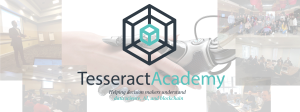I’ve been to many data science conferences over the years. Conferences are fun. You learn new things, watch some presentations, learn about new products and services, and hear some interesting case studies.
But why is it that so many people leave conferences more confused than when they first went in? I’ve spoken to many people without a technical background in conferences. And usually I get asked the same questions again and again. Questions like:
So, what is the difference between AI and machine learning?
What type of data scientist should I hire?
Can you help me understand whether problem X can be solved?
The common problem that all these individuals are facing is the following. There are simply not many good educational resources for data science for someone who is non-technical, but wants to use data science. Most decision makers are left with two choices:
Attend industrial conferences where most of the content is very high level, and vendors try to sell their products.
Hire an expensive consultant, mainly from one of the big 4 consultancies.
There is no middle ground which can provide actionable advice to those who need it. After being many years in this space, I’ve come to believe that it is possible to systematise the process of developing and dealing with solutions in data science problems. Things can be much easier than you might believe, as long as you have a process to work with.
This is the reason I decided to create the Tesseract Academy.

The Tesseract Academy’s mission is simple. Help decision makers understand how to use data science, AI and blockchain to extract the maximum possible value. We have worked with companies of all sizes, from startups to big organisations like British Land, the US Navy and Vodafone.
Through our workshops, tools and frameworks, we provide you with a bespoke plan to successfully implement and utilise data science and blockchain. We make sure that you are not left behind in the technological race. You can find some of our free tools here, like the DS10 Questionnaire, designed to help you make decisions about data science using only 10 simple questions. Make sure to join our next event!

